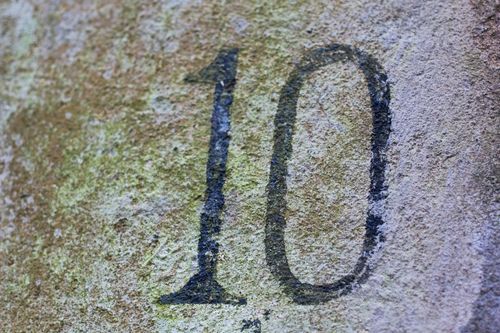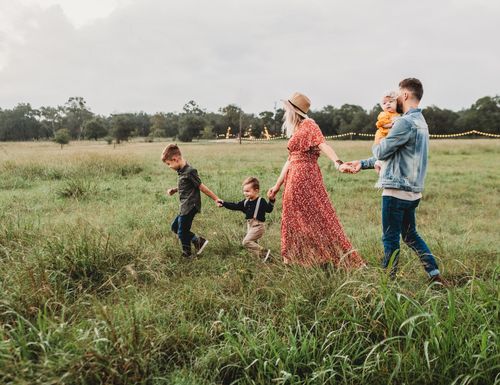Ellen White and the Sabbath
The Sabbath is an important topic in the Seventh-day Adventist Church. It shouldn’t surprise you, then, that Ellen G. White, a co-founder of the church, studied the Bible’s teachings on the Sabbath and wrote large amounts about it.
Her love for Jesus was what motivated her to keep the Sabbath day holy. On this day more than others, she experienced closeness with Him while drawing near to her family and serving others.
So, maybe you’re wondering what led Seventh-day Adventists like her to keep Saturday as the Sabbath in the first place.
You may wonder what Ellen White’s Sabbaths looked like.
Or you’d just like to know what she wrote about this special day of rest.
We’ll cover:
- How Ellen White learned about the Sabbath
- What visions she had about the Sabbath
- What she wrote about the Sabbath
- How she kept the Sabbath
How did Ellen White learn about the seventh-day Sabbath?
Early in 1846, 18-year-old Ellen Harmon (her maiden name) and her sister visited Joseph Bates, a retired sea captain and faithful Adventist who had just become a Sabbath keeper. He was excited to share with them the truth he had learned.
However, she did not accept the seventh-day Sabbath right away, just based on Joseph Bates’ words. Instead, she became a Sabbath keeper a few months later once she was convinced it was biblical.
The Harmons had been members of the Methodist church and thus kept the first day of the week (Sunday), like other early Adventists.
Switching to the seventh day was a major change. No wonder her initial response was reluctant.1 She wrote:
“I did not feel its importance, and thought that [Bates] erred in dwelling upon the fourth commandment more than upon the other nine.”2
But she desired to follow the Bible and the leading of the Holy Spirit. It was worth looking into.
Studying about the Sabbath
In August of the same year, Joseph Bates wrote a booklet called The Seventh-day Sabbath—a Perpetual Sign. He gave a copy to James White, Ellen’s husband, at a funeral they both attended. James took it home and they studied it earnestly. Within a couple of months, they became convinced: The seventh day was the Sabbath.
Here are some of the passages they would have read.
The booklet begins with Genesis 2:3:
“Then God blessed the seventh day and sanctified it, because in it He rested from all His work which God had created and made” (NKJV).
Bates continues with other evidence that the Sabbath existed from Creation. After all, Abraham kept God’s commandments (Genesis 26:5). Moses also mentioned the Sabbath as something the Israelites had already known about (Exodus 16:23).
After looking at the Old Testament, Bates turns to Jesus’ words in the New Testament.
Jesus said the Sabbath was for all humanity, not just the Jews (Mark 2:28).
Finally, Bates makes the case that the Ten Commandments, written by the finger of God in stone (Exodus 24:12), were still important during New Testament times. Jesus didn’t come to “destroy but to fulfill” the commandments (Matthew 5:17, NKJV).
Of course, these Ten Commandments included the Sabbath.
While reading Joseph Bates’ book, Ellen White also learned how the Sabbath had been changed. In the fourth century, the emperor Constantine—together with the Catholic Church—changed the day of worship from seventh day to the first day.
She wrote:
“We could not accept the word of man that the first day was the Sabbath when the Word of the Lord said the seventh day was the Sabbath.”3
Deciding to keep the Sabbath
 Ellen and James White began keeping the Sabbath and sharing it with others that autumn of 1846. Their example and counsel led many more Adventists to the same conviction. Eventually, the biblical Sabbath became a fundamental belief of the Adventist church.
Ellen and James White began keeping the Sabbath and sharing it with others that autumn of 1846. Their example and counsel led many more Adventists to the same conviction. Eventually, the biblical Sabbath became a fundamental belief of the Adventist church.
But keeping the seventh day as Sabbath was not the popular thing to do, as most Christian denominations keep Sunday as the holy day to attend church. These new Sabbath-keepers faced opposition because of it.
Even so, they remained loyal to God. In turn, He confirmed they were doing the right thing.
Next, we’ll explore how God did that.
What visions did Ellen White have about the Sabbath?
Ellen White had a few significant visions about the Sabbath. The first one helped confirm her conclusion that she should keep the seventh day holy. The others that followed dealt with details, such as how it’s connected to Bible prophecy and last-day events, and when Sabbath begins and ends each week.
But these visions did not give her new ideas outside the Bible. Instead, they confirmed what she and other believers had already been studying in the Bible.
She emphasized this point in one of her letters:
“I believed the truth upon the Sabbath question before I had seen anything in vision in reference to the Sabbath.”4
Instead of the visions convincing her of the truth, they helped her to see the Sabbath’s importance.
The Sabbath halo vision
Ellen White had two very similar visions about the Sabbath on March 6 and April 3 of 1847.5 They are sometimes referred to as the “Sabbath halo” visions.
So what happened?
 In the visions, she saw the temple (sanctuary) of God in heaven. The inner room, called the Most Holy Place, housed the sacred ark of the covenant (Revelation 11:19).
In the visions, she saw the temple (sanctuary) of God in heaven. The inner room, called the Most Holy Place, housed the sacred ark of the covenant (Revelation 11:19).
Inside that ark?
“I saw the Ten Commandments written on them with the finger of God. On one table were four, and on the other six. The four on the first table shone brighter than the other six. But the fourth, the Sabbath commandment, shone above them all…. The holy Sabbath looked glorious—a halo of glory was all around it.”
But there was more.
She was carried through a review of the factors that give validity to the Sabbath and its observance.6
She saw that the Sabbath would be a point of decision in the last days. People would have to choose whether to be loyal to God or to a false religious power (Revelation 14:9–12).
Sabbath keepers would experience persecution.
Yet there would be hope.
After this persecution, Jesus would return and take them to the Holy City at the Second Coming, which was open to those who keep the commandments of God (Revelation 22:14).
Not everything in the vision made sense to Ellen White, but one thing she knew:
“These prophetic words suggested a Sabbath reform.”7
The Sabbath and the three angels’ messages
When Ellen White had her first visions about the Sabbath, she didn’t understand everything she saw. But her diligent study and other visions helped her. She realized that the Sabbath was tied to important last-day prophecies, especially the three angels’ messages in Revelation 14.
Here’s a quick review of those messages:
The first angel announced the judgment of God and called people to worship the Creator (Revelation 14:6–7).
The second angel urged people to leave the religious confusion and false teachings that Babylon represents (Revelation 14:8).
But how about the third message?
It was a warning against false worship (Revelation 14:9–11). And it contrasted this worship with the loyalty of God’s people:
“Here is the patience of the saints; here are those who keep the commandments of God and the faith of Jesus” (Revelation 14:12, NKJV).
As Ellen White and other Adventists studied this passage, they realized that its core was worship.
Those who worshiped the Creator (Revelation 14:7) would keep His commandments—including the Sabbath—instead of worshiping the “beast,” which symbolized a false religious system.
In her own words:
“I was shown that the third angel, proclaiming the commandments of God and the faith of Jesus, represents the people who receive this message and raise the voice of warning to the world, to keep the commandments of God as the apple of the eye.”8
Visions about the Sabbath’s timing
For about ten years, Seventh-day Adventists disagreed on when the Sabbath should begin. God allowed them to have this time to study it from the Bible for themselves before giving Ellen White a vision to settle the matter once and for all.
 Joseph Bates believed that Sabbath should start and end at 6:00 p.m. He thought this would avoid the confusion of sunset times that varied across the world and throughout the year. Many Adventists—including Ellen White—kept the Sabbath this way.9
Joseph Bates believed that Sabbath should start and end at 6:00 p.m. He thought this would avoid the confusion of sunset times that varied across the world and throughout the year. Many Adventists—including Ellen White—kept the Sabbath this way.9
But some thought that Sabbath should be kept from sunrise to sunrise. Others advocated for sunset to sunset.
Which was correct?
In 1847, Ellen White had a vision that the sunrise-to-sunrise belief was wrong. The angel quoted Leviticus 23:32, which says, “From evening to evening, you shall celebrate your sabbath” (NKJV).
Even so, it wasn’t until 1855 that everything became clear. At that time, James White asked J.N. Andrews, another Adventist, to study the topic in the Bible and write a paper about it.
Andrews’ conclusion?
According to the Bible, “evening to evening” meant sunset to sunset. Ellen White received a vision soon after that confirmed this conclusion.10
Since then, Seventh-day Adventists have kept the Sabbath from sunset Friday to sunset Saturday.
What did Ellen White write about the Sabbath?
Ellen White wrote an extensive amount about the Sabbath, always pointing back to the Bible’s teachings about it. She discusses:
- the Sabbath’s origin at Creation
- its significance
- its observance throughout history11
- its connection with Bible prophecy
- practical principles for Sabbath keeping
Her writings go beyond facts, though.
They express God’s original plan that the Sabbath would be a day of rest, joy, beauty, and connection with Him.
So, let’s get a taste.
Creation and the Sabbath’s significance
Ellen White’s writings often mention God’s reasons for giving the Sabbath as a blessing to humans. Her key points are:
- God gave the Sabbath at Creation.
- It reminds us that God is our creator.
- It is a sign of how God makes us holy.
- It fosters our relationship with God.
Here’s how she connects the Sabbath and Creation: “It was a memorial of the work of creation, and thus a sign of God’s power and His love.”12
Elsewhere, she wrote,
“By observing the true Sabbath, Christians are ever to bear to the world faithful witness of their knowledge of the true and living God as distinguished from all false gods, for the Lord of the Sabbath is the Creator of the heavens and the earth.”
Besides being a reminder of Creation, the Sabbath is a sign of what God wants to do in our lives. Reflecting on Ezekiel 20:12, Ellen White says, “The Sabbath is a sign of Christ’s power to make us holy.”13
It is also “a sign of the relationship existing between God and His people.”14 In other words, the Sabbath is about spiritual growth.

After all, God made the Sabbath day as a benefit to us:
“Man was not made to fit the Sabbath; for the Sabbath was made after the creation of man, to meet his necessities.”15
He didn’t give the Sabbath as something to cross off our religious checklists (Mark 2:28). He wanted it to be a day in which we can turn from day-to-day pressures and deepen our connection with Him—through prayer, worship, Bible study, time with people, and serving others.
As we engage in the Sabbath with this mindset, we find peace and rest in Jesus (Matthew 11:28–30). Ellen White’s writings point to this beautiful experience.
The Sabbath through history
Ellen White documents the way that faithful believers have upheld the Sabbath throughout history.
She gives evidence from the Bible that the patriarchs—Noah, Abraham, etc.—kept the Sabbath. She also traces the Israelites’ experience of keeping the Sabbath up to the time of Jesus.
In her book on the life of Christ,16 she delves into His authority over the Sabbath. He didn’t come to set the law aside. Instead, He came to fulfill it and free it from all the additional restrictions placed on it by humans, such as the Pharisees.
Furthermore, she highlights how Christ kept the Sabbath:
- He healed the sick.
- He attended the synagogues and taught there.
- He spent time in nature.
 Her pivotal work, The Great Controversy, looks at how the Sabbath was changed to Sunday by the Catholic Church during the fourth century (which is documented in its catechism). Despite this, a small group of people during that time continued to keep the Sabbath. And at the end of time, just before Jesus returns at the Second Coming, the Sabbath will be like a seal that distinguishes God’s loyal followers.17
Her pivotal work, The Great Controversy, looks at how the Sabbath was changed to Sunday by the Catholic Church during the fourth century (which is documented in its catechism). Despite this, a small group of people during that time continued to keep the Sabbath. And at the end of time, just before Jesus returns at the Second Coming, the Sabbath will be like a seal that distinguishes God’s loyal followers.17
She often quotes Isaiah 58:12–14 to show that God’s people will restore the Sabbath’s importance. Here’s a snippet:
“The breach was made in the law of God when the Sabbath was changed…. But the time has come for that divine institution to be restored. The breach is to be repaired.”18
God’s people will restore true Sabbath keeping as they announce the third angel’s message, which is a call to keep the commandments of God and the faith of Jesus.19
Though Ellen White wrote a lot about the theological side of the Sabbath, she gave practical advice too. We’ll look at that next.
Keeping the Sabbath holy
As Adventist were first learning about the Sabbath, they naturally wondered how to keep it according to God’s commandment (Exodus 20:8). Ellen White helped meet this need by writing about the biblical principles for keeping Sabbath holy, such as:
- Using Friday as the preparation day for Sabbath
- Avoiding unnecessary work
- Setting aside all secular matters to focus on God
- Worshiping God together at church
- Spending time reading the Bible or walking in nature
- Serving others
Let’s dive into these.
In the Bible, the Israelites prepared their food and finished their work before the Sabbath (Exodus 16:23; Numbers 11:8). She applies the principle to us:
“On Friday let the preparation for the Sabbath be completed. See that all the clothing is in readiness and that all the cooking is done.”20
In this way, the Sabbath could be a time to draw closer to God. Unnecessary work could be avoided:
“This should be a day of blessing to us—a day when we should lay aside all our secular matters and center our thoughts upon God and heaven.”21
Notice that first part?
The Sabbath is meant to be a blessing! Many times, Ellen White emphasizes its joy and delight. She said the whole family can look forward to it more than any other day.22
A key aspect of the Sabbath is fellowship with other believers. One time, Ellen White conversed with a woman who thought she’d be breaking the Sabbath if she took public transportation to Sabbath worship services.
This was Ellen White’s response:
“I told her no; that it was more displeasing to God to remain away from the meetings than to ride on the cars to meet together to worship God.”23
 Sabbath school, similar to Sunday school, was part of these meetings. It consisted of classes for people of different ages to study the Bible together. She wrote so much about Sabbath school that a whole book has been compiled with her counsel about it.24
Sabbath school, similar to Sunday school, was part of these meetings. It consisted of classes for people of different ages to study the Bible together. She wrote so much about Sabbath school that a whole book has been compiled with her counsel about it.24
In regard to Sabbath afternoon activities, she encourages parents to spend time with their children instead of leaving the children to themselves. They could do things together, like read Bible stories or take them out in nature where they can enjoy God’s creation.25
She also uses the example of Jesus in Matthew 12:12 to show that the Sabbath is a day to bless others and “relieve suffering.”26
After reading some of these counsels, you might be asking how Ellen White kept the Sabbath.
Read on for a peek into her own practices.
How did Ellen White keep the Sabbath?
To Ellen White, the Sabbath was a precious day with Jesus and her family. She always did her best to prepare for Sabbath so that she didn’t have to think about work or business once Sabbath began. Sometimes, her family would attend church services and then spend time together in the afternoon. Other times, she and her husband had speaking engagements where they encouraged and helped people.
 The following journal entry encapsulates what the Sabbath day meant to her:
The following journal entry encapsulates what the Sabbath day meant to her:
“We bowed before God at the commencement of the Sabbath. I commenced to pray and my heart went out after God…. Jesus seemed so precious, so very precious to me. I laid all my burdens upon my Saviour and I was relieved.”27
These are some words she used to describe the Sabbath:
- “A joy”
- “A blessing”
- “A most precious day”
- “A special day of fasting and prayer”
- “Peaceful hours”
Let’s look at what a typical Sabbath might have looked like in the White home.
Spending the Sabbath with her family
For the Whites, the joy of the Sabbath began at sunset on Friday evening when they would take time in prayer, worship, and singing.
The next morning, the family would be up early so that they “could go to service without the hurry and worry.”28
First, they attended Sabbath school, followed by the main worship service.

On Sabbaths, Ellen White would prepare simple meals ahead of time for the family to eat. Her daughter-in-law notes:
“All unnecessary work was avoided on the Sabbath but at no time did Mrs. White consider it a violation of proper Sabbath observance to provide for the ordinary comforts of life, such as the building of a fire for the heating of the house or the heating of the food for the meals.”29
In the afternoons, the family would sometimes take a walk outdoors to enjoy nature.
Reading together was another one of their Sabbath activities. An assistant in their home said that Ellen White “spent much time in reading to [her children] on the Sabbath from her large amount of choice selections of moral and religious matter.”30
At sunset, the family would again gather for worship.
Serving others on the Sabbath
Ellen White was not always home on Sabbaths because of how much she and her husband traveled.
Here’s what their ministry activities would have looked like at those times:
- Speaking in worship services or gatherings called camp meetings
- Visiting people to counsel and encourage them
- Praying and caring for the sick
- Traveling to speaking engagements (though they tried to avoid travel if they could)31
On occasion, they would have a quiet Sabbath as she describes in this journal entry:
“We have another beautiful day…. We took our writing and walked quite a distance to the shade of a tree to find a quiet place to write…. We took our simple lunch under the tree.”32
Throughout her lifetime, Ellen White upheld the Sabbath in her writings and her example. She cherished it because it was the day—more than any other—when she drew near to Jesus and worked with Him.
Discover the blessings of the Sabbath for yourself
 We have seen a snapshot of the Sabbath and its beauty through the eyes of Ellen White. And each time, we have found that the Bible is the foundation.
We have seen a snapshot of the Sabbath and its beauty through the eyes of Ellen White. And each time, we have found that the Bible is the foundation.
Her visions from the Holy Spirit about the Sabbath helped her and the early Adventists to know that they were heading in the right direction. But they weren’t telling them anything the Bible didn’t already say. They simply helped her apply what the Holy Spirit was teaching her as she studied the Bible.
And the Bible is the reason Adventists keep the Sabbath today.
The Sabbath is a biblical commandment, principle, and blessing, inviting us to a special appointment with God where we get to put aside work and focus on deepening our relationship with Him. Thus, we keep the Sabbath day holy out of our love for Him and desire to draw closer to Him—just like Ellen White did.
As you’ve read about the joy of Sabbath and its importance for God’s followers in the last days, would you like to learn more?
Check out our Bible study guides that can help you do just that.
- Coon, Roger W., A Gift of Light, (1998), p. 25. [↵]
- Rebok, Denton Edward, Believe His Prophets, (1955), p. 76. [↵]
- White, Ellen G., Letters and Manuscripts, vol. 2, Letter 12, 1869. [↵]
- White, Letters and Manuscripts, vol. 2, Letter 2, 1874. [↵]
- Maxwell, p. 92. [↵]
- White, A. L., Ellen G. White: The Early Years: 1827–1862, vol. 1 (Hagerstown, MD, Review and Herald, 1985), p. 121. [↵]
- White, Testimonies for the Church, vol. 1 (Mountainview, CA: Pacific Press, 1948), p. 78. [↵]
- Ibid., p. 77. [↵]
- Douglass, Herbert, Messenger of the Lord, (Pacific Press, Nampa, Idaho, 1998), p. 156. [↵]
- White, Testimonies for the Church, vol. 1, p. 116. [↵]
- Ellen G. White Topical Index, “Sabbath.” [↵]
- White, Ellen, The Desire of Ages (Pacific Press, Mountain View, CA, 1898), p. 281. [↵]
- White, The Desire of Ages, p. 288. [↵]
- White, Ellen, Counsels on Health (Pacific Press, Mountain View, CA, 1923), p. 358. [↵]
- White, Ellen, Testimonies for the Church, vol. 2 (Pacific Press, Mountain View, CA, 1868), p. 582. [↵]
- White, The Desire of Ages, pp. 281–289. [↵]
- White, The Great Controversy (Pacific Press, Mountain View, CA, 1911), p. 605. [↵]
- Ibid., p. 452. [↵]
- Ibid., p. 453. [↵]
- White, Child Guidance (Review and Herald, Washington D.C., 1954), p. 528. [↵]
- Ibid., p. 529. [↵]
- Ibid., p. 531; The Great Controversy, p. 536. [↵]
- White, The Ellen G. White 1888 Materials (Ellen G. White Estate, Washington, D.C., 1987), p. 773. [↵]
- White, Testimonies on Sabbath-School Work. [↵]
- White, Child Guidance, p. 533; White, Ellen, “Never Yield the Sabbath,” Signs of the Times, Feb. 28, 1878. [↵]
- White, Selected Messages, book 3 (Review and Herald, Washington D.C., 1980), p. 258. [↵]
- White, Letters and Manuscripts, vol. 2, Letter 7, 1876. [↵]
- White, Sermons and Talks (Ellen G. White Estate, Silver Spring, MD, 1994), p. 107. [↵]
- White, Selected Messages, book 2 (Review and Herald: Washington D.C., 1958), p. 263. [↵]
- White, An Appeal to the Youth (SDA Publishing Association, Battle Creek, MI, 1864), p. 19. [↵]
- White, Letters and Manuscripts, vol. 2, Manuscript 13, 1873. [↵]
- Ibid., Manuscript 8, 1873. [↵]
Questions about Adventists? Ask here!
Find answers to your questions about Seventh-day Adventists
More Answers
The Health Benefits of Fresh Air You Should Know About
The Health Benefits of Fresh Air You Should Know About“When you can’t breathe, nothing else matters,” the American Lung Association tells us. And while that’s true, the kind of air you’re breathing will determine the health benefits you experience. Breathing fresh...
What Do Seventh-day Adventists Choose to Eat?
What Do Seventh-day Adventists Choose to Eat?Food blogs overwhelm the internet; food fads are all the rage; and copycat and healthy versions of food are the subject of many a get-together. Eating—and eating the best way—is a big deal. And everybody has a different...
10 Incredible Ways Sunlight Can Improve Your Health
10 Incredible Ways Sunlight Can Improve Your HealthAre you concerned about sunlight’s negative effects? You might be the one who lathers on the sunscreen and covers up when you go outside. Or maybe you avoid being outside as much as possible. You might be surprised,...
Why Is Water So Important?
Why Is Water So Important?We all know that water is a substance we can’t live without. It quenches our thirst and keeps us hydrated on the inside. And it’s necessary for hygiene and cleansing on the outside too. But did you know that the cleansing properties of water...
Ellen White’s Writings and the Adventist Health Message
Seventh-day Adventists are known for their emphasis on healthy living. And Ellen G. White was a significant influence in the development of this priority and practice among Adventists.
Health Clinics
Ellen White and Adventist Healthcare—Ahead of Their Time Medical care in the mid-1800s was primitive, to say the least. Basic concepts we take for granted—such as proper handwashing or recognizing the dangers of bloodletting—were nonexistent. And doctors often had...
What Did Ellen White Teach about Vegetarianism?
What Did Ellen White Teach about Vegetarianism?One thing you might have heard about Seventh-day Adventists is their emphasis on a vegetarian lifestyle. If you’re wondering why that is, it goes back to our church’s humble beginnings: As Adventists studied the Bible,...
How Ellen White’s Teachings Can Improve Your Health
How Ellen White’s Teachings Can Improve Your Health Healthcare in the nineteenth century was said to leave “more disease than it took away” with its use of bloodletting and “medicines” like mercury and arsenic.1 As people questioned these methods, new approaches...
Change Your Perspective on Life with These 5 Mindsets
5 Biblical Mindsets to Change Your Life for the Better Sometimes, life is just plain hard. There’s no way around it. So would thinking about things differently really change anything? Our perspective on life, and everything it throws at us, affects more than we’re...
Bible Promises for When You’re Worried or Fearful
Bible Promises for When You’re Worried or Fearful The Bible is full of beautiful promises that can comfort us in a variety of situations. They can give us hope when we are hopeless, make us feel grateful for God’s love, and comfort us when we’re grieving or suffering....
12 Practical Ways to Overcome Worry
12 Practical Ways to Overcome Worry DISCLAIMER: This content is for informational purposes only. It does not constitute any professional medical advice and is not intended as a substitute for professional mental health therapy. It’s easy to get stuck in a cycle of...
How the Bible Talks About Worry, Fear, and Anxiety
How the Bible Talks About Worry, Fear, and Anxiety Worry and fear are the ingredients of anxiety. It’s easy to see how the world isn’t perfect—and the anticipation of a bad event or experience (that may or may not even happen) can end up draining the peace and...
How to Calm Anxious Thoughts, Using the Bible
How to Calm Anxious Thoughts, Using the Bible You were expecting a phone call from your daughter half an hour ago, and she still hasn’t called. She’s also not answering your calls. You feel your heart thumping as your thoughts race: What if she’s been in a car...
What You Should Know About the Adventist Health Studies
What You Should Know About the Adventist Health StudiesYou may have heard that Seventh-day Adventists care about health. But what you may not know is that Adventists have been the subjects of long-term research into lifestyle and health. Since 1958, researchers from...
Benefits of Sunlight
Yes, There Are Health Benefits of SunlightDespite the bad reputation it’s gotten, sunlight is generally associated with positivity, as shown by songs like “You Are My Sunshine,” or phrases that refer to delightful people as having a “sunny disposition.” There’s a...
Why Your Body Needs Rest for Optimal Health
Why Your Body Needs Rest for Optimal HealthStruggling to think straight? Wondering why you can’t remember that important tidbit you heard earlier today? Feeling like your emotions are about to explode? These are just some of the symptoms that can reveal your need for...
The Seventh-day Adventist Diet: One of Our Key Longevity Secrets
The Seventh-day Adventist Diet: One of Our Key Longevity SecretsOats, avocados, lentils, tofu—probably not what you first think of in a standard American diet. But if you show up at the home of an Adventist, chances are you may be served one of these staples. Out of a...
Why You Need Fresh Air
Why You Need Fresh Air“When you can’t breathe, nothing else matters,” the American Lung Association tells us. We couldn’t agree more! Breathing in clean air is an essential part of caring for our bodies, which God has given us. Together with other health principles,...
Sabbath Meal
Everything You Need to Know About Sabbath MealsFor Seventh-day Adventists, sharing a Sabbath meal with friends and family is one of the most special and memorable parts of the Sabbath. That’s why we want to share with you all about Sabbath meals and why they’re such a...
Adventists and Healthy Living
Adventists and Healthy LivingWhat’s the Adventist “Health Message” All About? One thing Seventh-day Adventists are known for is their emphasis on living healthy lives. Since our bodies are living temples of the Holy Spirit (1 Corinthians 6:19, 20), we strive to stay...
Water’s Importance—Physical Benefits and Spiritual Applications
Water’s Importance—Physical Benefits and Spiritual Applications We all know that water is a substance we can’t live without. Not only does it quench our thirst and keep us hydrated from the inside, but it’s necessary for hygiene and cleansing on the outside as well....
How Important is a “Day of Rest?”
How Important is a “Day of Rest?” Why God Created a Day for Downtime by Martin Casper Do you ever experience the feeling of complete overload? Do you feel like the only way you can get ahead is by slamming it 24/7? I hear these types of comments more and more...
7 Reasons Why a Day of Rest is Important
7 Reasons Why a Day of Rest is ImportantWe live in a fast-paced world. It seems as if success is measured in how much you can do in a short amount of time. (Extra points for the service or product that is available 24/7). The idea that we will be more successful if we...
How do Adventists choose what to eat?
How do Adventists choose what to eat?Every day, parents go through the ritual of getting their kids to eat what is healthy and good while trying to steer them away from what can hinder the growth of their developing bodies. Nutritionists work with their clients to...
How Can I Have a Better Marriage?
Is it possible to have a happy marriage?
How do Adventists make movie and music choices?
How do Adventists make movie and music choices?Cinema has come a long way since the first clips of motion pictures came to light in 1878. As the decades rolled on, film and music producers have created rivers of movies and albums for the masses. Today, watching movies...
Why are many Adventists Vegetarian?
Why are many Adventists Vegetarian?The diet intended for man is outlined in Genesis 1:29, “And God said, ‘See, I have given you every herb that yields seed which is on the face of all the earth, and every tree whose fruit yields seed; to you it shall be for food.’”...
Didn’t find your answer? Ask us!
We understand your concern of having questions but not knowing who to ask—we’ve felt it ourselves. When you’re ready to learn more about Adventists, send us a question! We know a thing or two about Adventists.





















